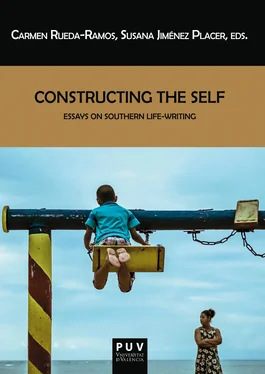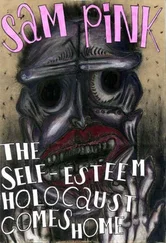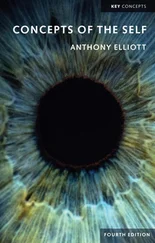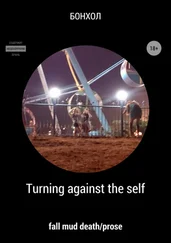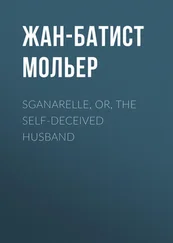Trethewey, like Jerry Ward, is a college professor. She holds a distinguished professorship at Emory University. Their narratives focus specifically on Hurricane Katrina, but they are nonetheless in a long line of African American life narrators who hold appointments in American universities. These narratives generally showcase an up-by-the-bootstraps trajectory of persons from impoverished communities who manage, against the odds, to acquire not only college degrees but who succeed in higher education. There is a plethora of manifestations of this category, including Louis Gates, Jr.’s Colored People (1994), Karla F. C. Holloway’s Codes of Conduct: Race, Ethics, and the Color of Our Character (1995) as well as her BookMarks: Reading in Black and White: A Memoir (2006), Deborah McDowell’s Leaving Pipe Shop: Memories of Kin (1996), and Horace A. Porter’s The Making of a Black Scholar: From Georgia to the Ivy League (2003). With the publication of my Summer Snow: Reflections from a Black Daughter of the South in 2003, I joined those academic narrators. Here, I reflect upon Summer Snow to comment on my composition of the narrative as well as various reactions to it. I am fortunate that the volume has been taught in a variety of classroom settings, including ones at Southern Illinois University, the University of Delaware, the University of Kansas, and the University of North Carolina at Charlotte.
Summer Snow had its impetus in a family loss. On 8 January 2001, my mother died at the age of 86. I started thinking about what I could do to honor her memory. I thought of a family newspaper or some kind of annual family gathering. Then, as I was mulling this over, I started thinking about my mother’s fishing history, and I thought about trying to capture some of the memories I had of her in a series of essays. Then, I thought, why not just produce a memoir in which my mother would play a vital role? That would give me a chance to honor her as well as to record some of the events surrounding my growing up in Tuscaloosa, Alabama, attending Stillman College there, and then matriculating to The Ohio State University in Columbus, Ohio. So, I started writing the essays on weekends, and they just seemed to flow from my mind and my pen. Things were going so well that, though I am not Catholic, I decided to give up the occasional glass of wine (which was really no stressful sacrifice) and all desserts (that was a major sacrifice) for Lent. It is amazing what one can accomplish in terms of thinking and writing when the body and mind are free of alcohol and sugar, but especially sugar. I wrote like a fiend between January and June of 2001, and Summer Snow was done. Though it was not published until 2003, the work was complete.
Now, in an attempt to capture autobiographical experiences, a writer makes choices—what to include; what to leave out; how to write about particular kinds of things, especially if they are embarrassing or make you look like a fool; and how to treat the countless characters who are going to people the volume with you. The decisions include such questions as: Do I really want to paint Great Aunt Jessie as the witch she was? Of course, she was a witch, . . . but, if I say that, her many descendants will be pissed off. That is, they will be pissed off IF they read the book.
Let me share a brief aside here—When Summer Snow was published, the North Carolina Writers Network asked me to come to Wilmington and talk about it. I gave my presentation the title “How to Write About YOUR Life Without Pissing Off Your Relatives.” They politely informed me that I could not use the phrase “pissing off” in my title because they would have to print it in their brochure for advance publicity, and they could not do that. If writers, scholars, and presumably sane intellectual people in 2003 wanted to censor a mere phrase, then imagine how much more Great Aunt Jessie’s relatives would want to censor how she might be presented for public viewing in something that I would write.
The writer, then, has to plan how to respond to accusations about Great Aunt Jessie if she decides to include a portrait of her. And think of neighbors. Did I really want to reveal that five men in my neighborhood noticed me too much from the time I was a mere thirteen or so years old and into my college years? That one even touched my breasts when I was cleaning house for his wife? Those men were all respected—by somebody, if not by me—and their reputations would be tainted if accurate descriptions of them appeared. In my mind, I always refer to them as “five dogs,” and I have, after all these years, written an essay about them that will appear in my second collection of non-fiction essays, which I have titled “Unspeakable.” In Summer Snow , however, I mention only one of them, the one that I encountered after I matriculated to college.
And what about teachers and colleagues? How did I want to portray them? Mostly, I had fond memories of my teachers, so that was less of a problem than the case of the five dogs. Things got a bit sticky when I considered the number of occasions on which I, as an African American woman, was a first of some kind or another—the first black professor in the English Department at the College of William and Mary, for example. Or those occasions on which I was one of a handful of black people in majority white environments, such as being one of the few black professors in English at the University of North Carolina at Chapel Hill. How did I want to treat the folks I encountered there and my interactions with them? After all, most of those people were still alive at the time of the writing and publishing of Summer Snow , and it would have been extremely difficult to disguise them in the writing. Contemplation of all these situations meant making particular kinds of creative and narrative choices. That is why I call Summer Snow a memoir instead of an autobiography. In memoir, one can be selective about inclusion, whereas autobiography suggests something more expansive, thorough, and complete.
There is thus a kind of self-censorship that a person writing about her own life has to consider. Now, that self-censorship can be minimal, such as leaving out true names, or expansive, such as leaving out years, episodes, events, and characters, but it is something that comes to mind. I am probably much more conscious of these things today than I was when I was actually composing the volume in 2001. A healthy dose of naiveté probably prevented me from being too restrictive. I did consciously make some choices, however, about the composition of the text and how I wanted people to respond to it, even if I were writing about them.
First, I was responsive to the sound of writing. In fact, I actually give a lecture in which I talk about words singing to me. For me, writing is rhythm, and I want readers to hear those rhythms as they read. In Summer Snow , I heard voices from my childhood, and I wanted to capture them, especially in essays such as “Cotton Pickin’ Authority” (29) and “The Overweight Angel” (69). If a phrase or sentence doesn’t sound right, then I will discard it and try again, because I want readers to be as much wrapped up in the voices and rhythms as I am.
I also made decisions about style. I wanted vivid, active prose (Mama sez, “I’ll slap you into next week” versus “the child was slapped into next week by her mother”). I wanted concrete images, such as when I describe the son of one of my neighbors washing collard greens with bath soap (119). I wanted to paint characters who would stick in the minds of readers, such as Aun’ Sis in “The Overweight Angel.” Notice I use the word “characters,” so a memoirist creates just as fiction writers do. And I wanted accuracy in word selection. Writing a column for several years for The Chapel Hill News was good practice in capturing that vividness.
Читать дальше
